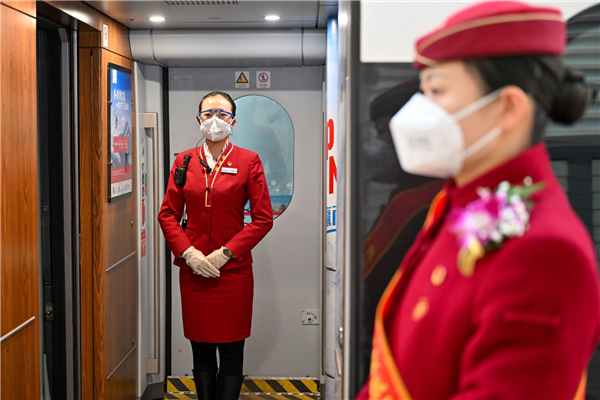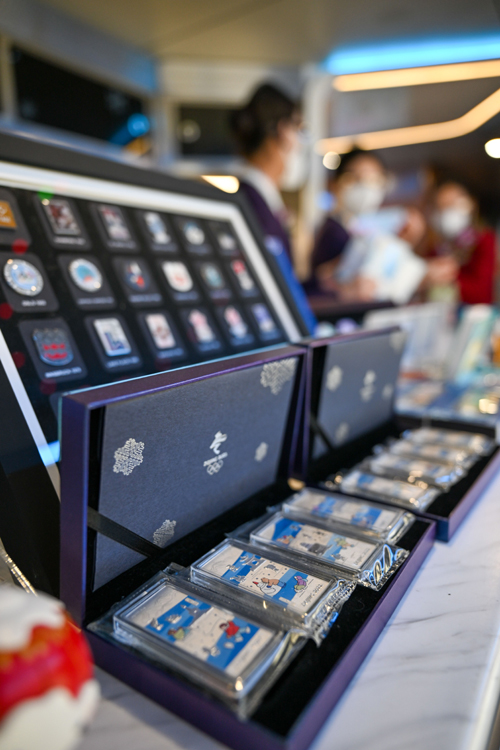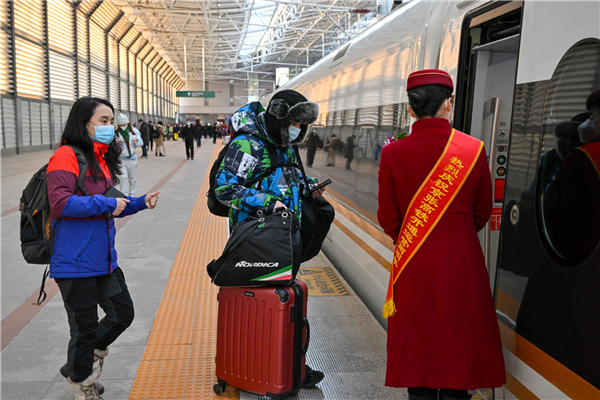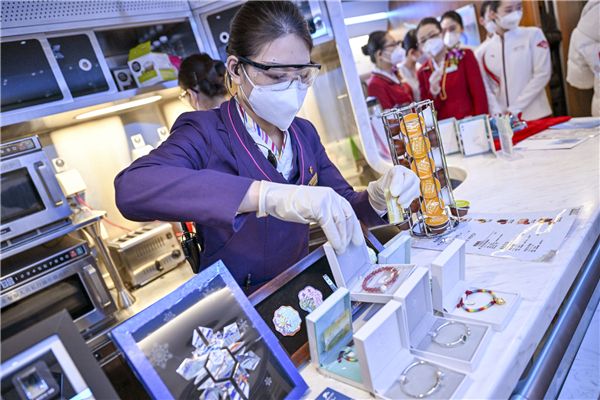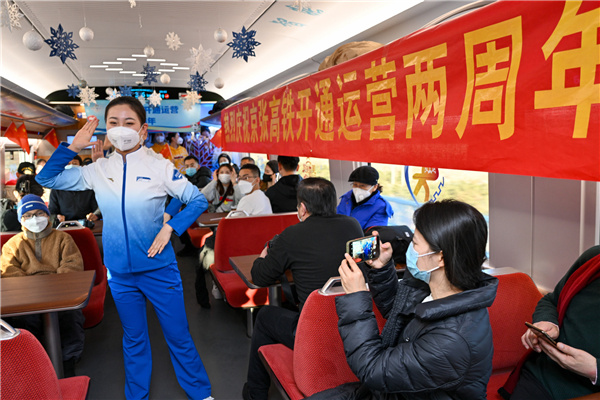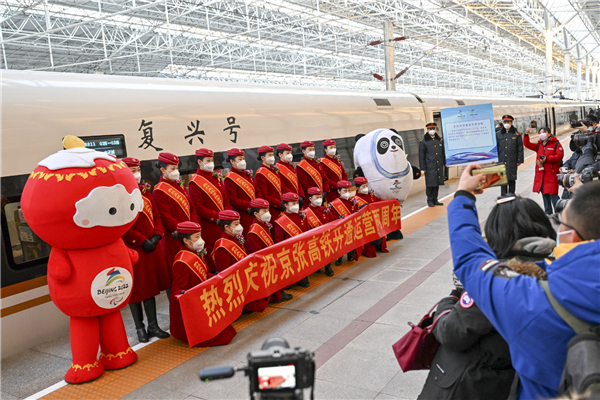
The Beijing-Zhangjiakou High-speed Railway, the main railway transportation method for the upcoming Beijing 2022 Olympic Winter Games, celebrated its second anniversary on Dec 30 as the railway sector has prepared for the sports gala.
The line, which opened on Dec 30, 2019, has handled 13.8 million passenger trips over the past two years, a daily average of 19,000 trips, according to China Railway Beijing Group, the line's operator. The trains run at 350 kilometers per hour.
The line will shuttle participants between Beijing and Zhangjiakou in Hebei province during the upcoming Olympic and Paralympic Winter Games.
The Games will be mainly held in three areas-Beijing's downtown area, its suburban Yanqing district and Zhangjiakou's Chongli district. Three railways connecting venues and participants' residences will provide commuting services: Beijing-Zhangjiakou High-speed Railway and its Chongli and Yanqing branches.
Passengers can take the bullet train from downtown Beijing to Yanqing in half an hour and to Chongli in an hour.
Public transport services are provided at railway stations with barrier-free facilities. The stations also offer customer services in English and Chinese languages and ski gear shipment services.
Railway stations including Qinghe and Yanqing in Beijing and Taizicheng in Zhangjiakou will soon start offering separate services to participants for the Games in the bubble and regular passengers, to comply with the epidemic control protocols to reduce the risk of infection of COVID-19, according to China Railway Beijing Group.
The stations will be divided into bubble and outside-of-bubble areas. Athletes, coaches, officials, media representatives and other participants who are required to stay within a biosecure bubble during the Games will use the bubble areas at the stations, including designated bullet trains and platforms.
Shuttle buses for transfers between stations and destinations will also be provided in certain areas. A designated group of railway staff members, including drivers, attendants and conductors will provide onboard services to passengers in the bubble.
Regular passengers can enter, wait and board the train in non-bubble areas.
"We have carried out several drills to ensure smooth transportation for the Games, and we are ready for it," said Zhang Shuwang, who is in charge of station management at China Railway Beijing Group.
Attendants are improving their English skills to better communicate with passengers for the Games.
"Every day, some English learning materials will be sent to our study group and each of us should finish the homework. It is recorded as part of our work performance evaluation," said Lyu Pan, a conductor on the line.
The Beijing-Zhangjiakou High-speed Railway passes several tunnels and some passengers may experience ringing in the ears. Attendants will demonstrate an exercise to ease the ringing.
"We hope to provide the best service to participants for the Games, and we are fully prepared," she said.
A broadcast of the Games and Wi-Fi will be provided onboard.
